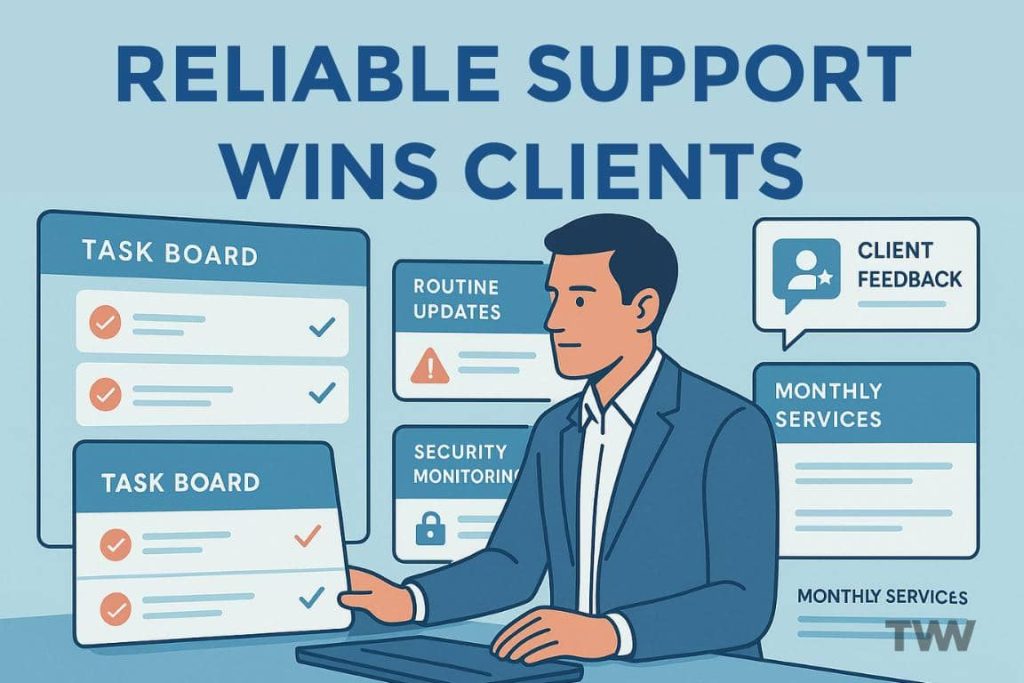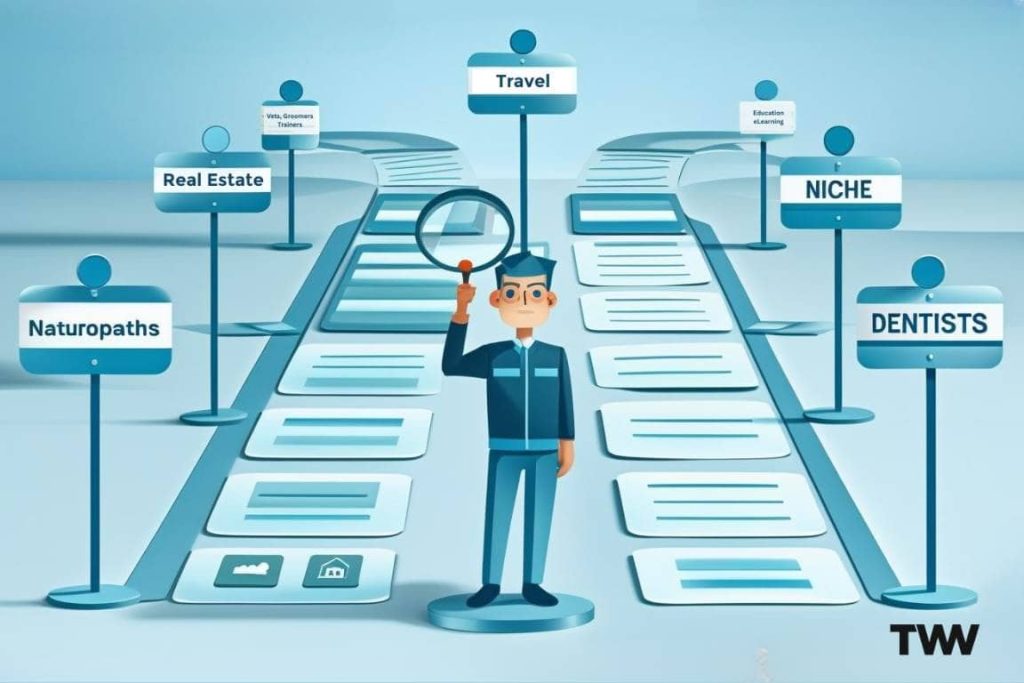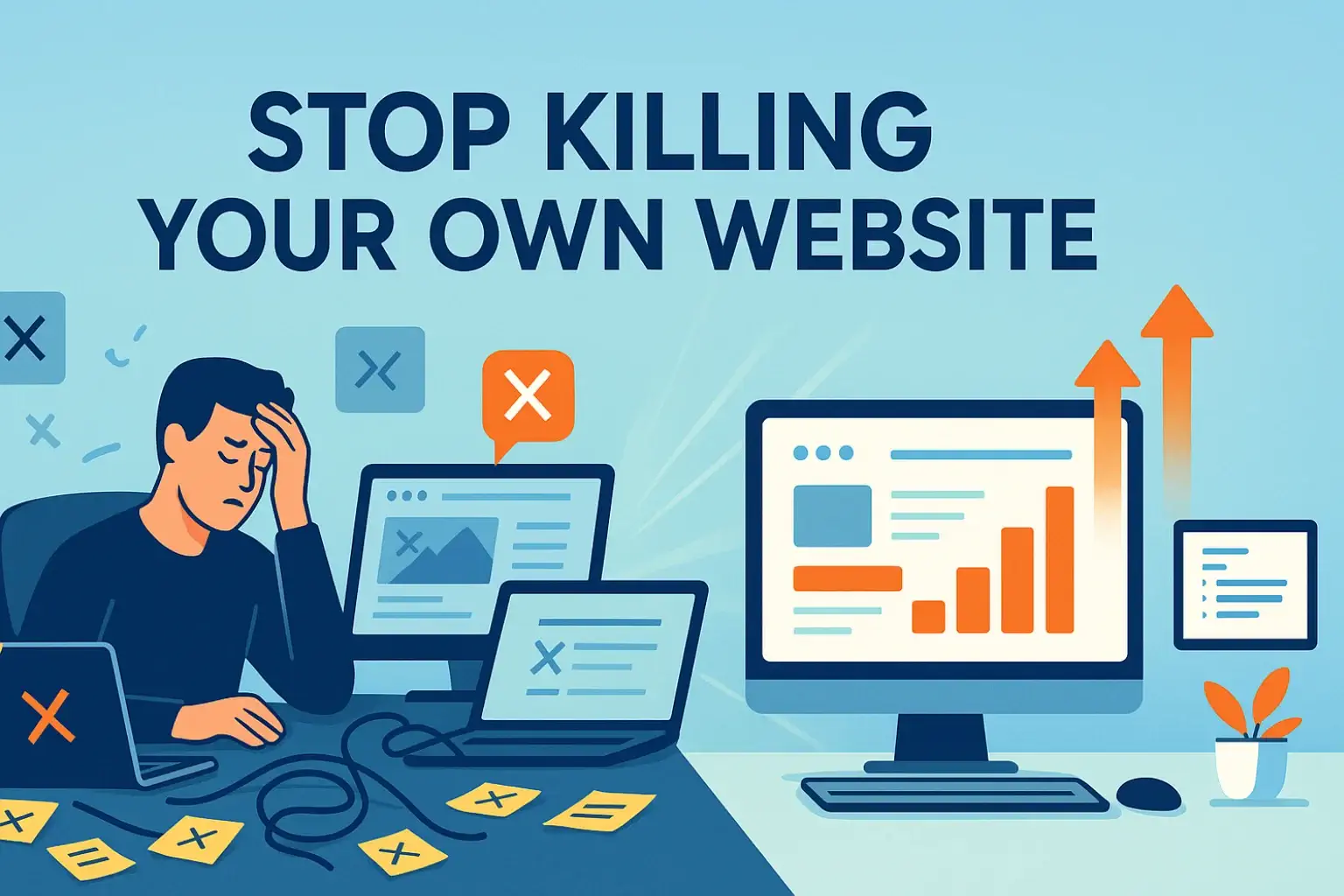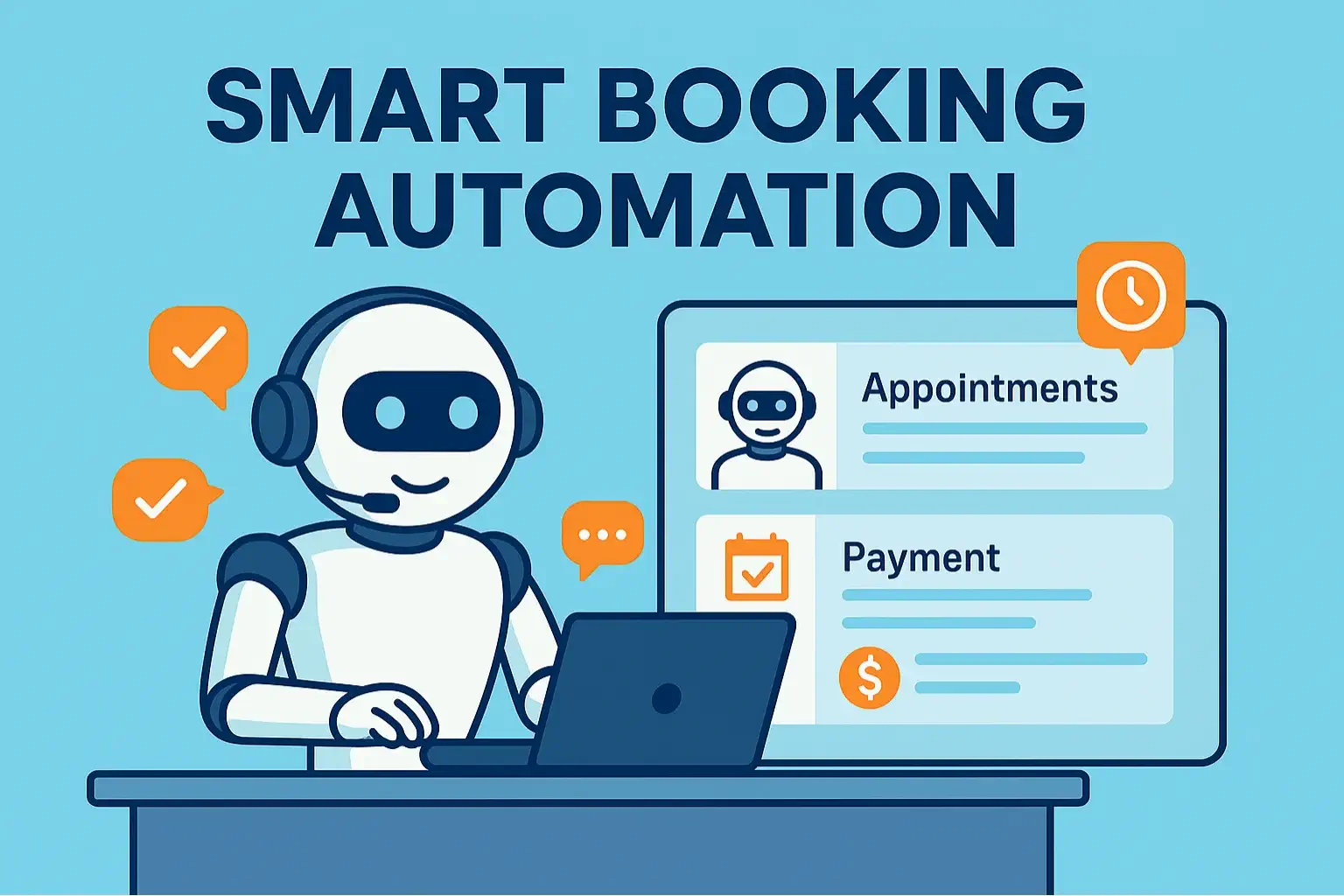Niche specialization, branding, and marketing tips to stay competitive in a crowded web development market.
To stay competitive as a web developer, it’s crucial to adapt to the evolving demands of the industry. Whether you’re just starting out or looking to elevate your career, positioning yourself strategically will help you stand out. This guide will walk you through the key steps to maintain your edge and thrive in the competitive web development market.
Table of Contents
- Why Staying Competitive Matters
- Specialize to Stand Out in Niche
- Build Your Web Development Brand
- Use Testimonials to Gain Trust
- SEO Tips for Web Developers
- Offer Site Support and Updates
- Keep Up with Tech and Trends
- Pick the Right Niche and Client
How to Stay Competitive as a Web Developer in 2025
In today’s fast-paced digital world, web development is one of the most dynamic and competitive industries. With countless developers entering the market, it’s more important than ever to stay competitive as a web developer. As demand for websites and applications continues to soar, developers face the challenge of not just keeping up but staying ahead of the curve. Whether you’re a seasoned developer or just starting out, positioning yourself strategically will help you rise above the competition. In this post, we’ll dive into actionable strategies that will ensure you stay competitive as a web developer in the ever-evolving world of web development, with a special focus on niche specialization, personal branding, and marketing.
Why Staying Competitive Matters
Staying competitive as a web developer is not just about beating the competition; it’s about ensuring that you remain visible and valuable in a crowded market. Whether you’re freelancing or working with an agency, a strong competitive edge means better-paying clients, repeat business, and a growing reputation. Without this edge, you risk getting lost in the noise. So how do you make sure your web development skills, brand, and business stand out?
How Specializing in a Niche Helps You Stay Competitive as a Web Developer
In a crowded web development industry, specialization is one of the most effective strategies to stay competitive as a web developer. While being a generalist can appeal to a wide audience, focusing on a specific niche allows you to establish yourself as an expert in that area.
How Specialization Helps You Stand Out:
- Increased Demand for Expertise: Clients are often looking for developers with specific skills tailored to their needs. For example, e-commerce websites, healthcare web development, or custom CMS solutions require developers who know the unique challenges of these sectors. Specializing in one of these areas ensures clients are not only interested in what you can do but in how well you understand their unique problems.
- Building a Strong Portfolio: A specialized portfolio showcasing your work within a niche can make your website stand out to potential clients. You can showcase specific case studies and examples that speak directly to the needs of your niche.
- Less Competition: Specialization creates a barrier for generalists. By focusing on a specific area, such as UX/UI design for mobile apps or WordPress development for business owners, you limit the number of developers who can compete with you in the same space. This reduces competition and allows you to charge higher rates for your expert knowledge.
How to Choose Your Niche:
- Look at Your Passion: What type of projects excite you the most? By focusing on something you’re passionate about, you’ll be more likely to stay motivated and put your best work forward.
- Identify Market Demand: Do some research. What industries need web developers the most? For instance, fintech and e-commerce are thriving industries that will continue to grow in the coming years.
- Evaluate Your Skills: Identify where your current skills overlap with market demand. If you’re already good at building e-commerce sites, for example, consider making that your niche.
Build Your Personal Brand as a Web Developer

In a competitive industry like web development, a solid personal brand is invaluable. It’s not just about technical skills but how you present yourself to potential clients. Your personal brand is a reflection of your expertise, values, and how you interact with others in your field. When done right, it can lead to increased trust, higher-quality leads, and stronger client relationships.
Develop a Strong Online Presence
Your website serves as the core of your personal brand. It’s where potential clients can see your portfolio, understand your services, and get a feel for your style. But it’s not just about showcasing your work—it’s about positioning yourself as the best in your field.
Ensure your website:
- Has a clean, user-friendly design that reflects your skills.
- Includes clear calls to action (CTAs) that make it easy for visitors to contact you.
- Provides detailed case studies, not just project examples, showing how you solve problems for your clients.
- Features a blog where you can share insights, tutorials, and updates on industry trends.
Leverage Social Media for Web Developer Branding Strategies
Social media offers a unique opportunity to build your personal brand. By sharing your knowledge, engaging with others in your industry, and participating in relevant conversations, you can build an authentic online presence. Each platform offers different ways to connect with your audience, so it’s important to tailor your strategy:
- LinkedIn: Ideal for showcasing your experience, skills, and professional background. Share relevant content, interact with other industry professionals, and use it to network.
- Twitter: Great for quick tips, industry news, and engaging with thought leaders. Use hashtags to reach a broader audience and establish your presence in conversations.
- Instagram: While typically visual, Instagram is perfect for showcasing design and development projects through posts or stories.
Content marketing will also play a crucial role in your branding efforts. Writing blogs or sharing tutorials not only boosts SEO but shows that you’re a leader in your niche. Educational content builds trust and demonstrates that you care about adding value to the community, not just selling services.
Enhance Your Web Developer Branding with Client Testimonials and Case Studies
Client testimonials and case studies are two of the most persuasive ways to showcase your abilities as a web developer. When potential clients see that you’ve delivered successful results for others, they’ll feel more confident about choosing you for their projects.
Request Client Testimonials
Happy clients are one of your best marketing tools. After completing a project, reach out and ask them for a testimonial. Ensure these testimonials are visible on your website and social media profiles. Positive reviews from clients you’ve worked with are invaluable to prospective clients who are hesitant about hiring you.
Publish Detailed Case Studies to Stand Out as a Developer
A case study provides in-depth insight into your process. It’s not just about showing the end result, but it’s about explaining how you solved a client’s specific problem. A strong case study highlights:
- The problem or challenge the client faced.
- The solutions you implemented.
- The positive results achieved, using data when possible (e.g., increased sales, improved website performance, etc.).
How to Structure a Case Study:
- Introduction: Briefly explain the client’s business and what they needed.
- Challenges: Describe the specific challenges they faced.
- Solution: Detail the steps you took to solve their problem.
- Results: Showcase the measurable outcomes of your work.
Marketing Yourself: SEO for Web Developers
Effective marketing is crucial in web development. SEO (Search Engine Optimization) helps you ensure that when potential clients search for a web developer, you’re visible. As a developer, you can use SEO to get your website in front of the right people at the right time.
Optimizing Your Website for Search Engines
As a web developer, your website needs to reflect your expertise, but it also needs to be optimized for search engines.
- Keyword Research: Use tools like Google Keyword Planner or Ahrefs to find high-ranking keywords that align with your services (e.g., “web developer for startups,” “WordPress expert”).
- On-Page SEO: Make sure your page titles, meta descriptions, headings (H1, H2, H3), and URL structure are optimized for relevant keywords. This helps search engines understand what your site is about and rank it appropriately.
- Mobile Optimization: A mobile-friendly site is essential for SEO. Most web traffic now comes from mobile devices, so ensure your website is responsive and optimized for mobile browsing.
- Local SEO: If you’re targeting a local market, local SEO is crucial. Set up a Google My Business profile, get listed in local directories, and include local keywords on your site.
Leverage SEO for Lead Generation
In addition to improving your website’s visibility, SEO can be a powerful tool for generating leads. You can attract targeted traffic by:
- Blogging: Regularly publishing high-quality, informative blog posts allows you to rank for keywords your target audience is searching for. Examples: “How to Choose the Right Web Developer” or “Top Trends in E-Commerce Development for 2025.”
- Lead Magnets: Offer free downloadable resources like guides, checklists, or eBooks in exchange for contact details. This helps you grow your email list and capture high-quality leads.
Offer Ongoing Maintenance and Support to Build Long-Term Client Relationships

As a web developer, your role doesn’t stop after the website goes live. Offering ongoing support and maintenance not only ensures the site stays up-to-date but also helps you build long-lasting client relationships.
Maintenance Packages
Offer clients monthly maintenance packages that cover regular updates, security patches, and content updates. These packages provide recurring revenue and keep clients coming back for more.
SEO and Content Updates
Websites need constant content updates and performance monitoring. By offering these services, you’re ensuring your clients’ sites remain competitive and optimized.
Stay Up-to-Date with the Latest Technologies and Trends
In a fast-changing field like web development, staying up-to-date with the latest tools, technologies, and trends is critical.
Invest in Professional Development
Enrolling in online courses and attending workshops allows you to stay ahead of the curve. Take advantage of learning platforms like Udemy, Coursera, or freeCodeCamp to keep your skills sharp.
Experiment with New Tools
Stay on top of new development tools, CMSs, and frameworks. Tools like Figma for design or Webflow for no-code development are growing in popularity and can add valuable skills to your repertoire.
Networking and Community Involvement
Joining communities like GitHub, Stack Overflow, and attending conferences can provide insight into new technologies and foster relationships with like-minded professionals.
How to Choose the Right Niche: Understanding Your Target Audience

One of the most important decisions you’ll make as a web developer is who you want to work with. Instead of trying to cater to everyone, it’s crucial to focus on a specific niche. When you specialize, you can target your services, attract the right clients, and charge higher rates. So, how do you choose the right niche?
Start Broad, Then Narrow Down
While you might start with a broader category (like health or real estate), it’s essential to get more specific. For example, within the health industry, you could specialize in building websites for naturopaths or even narrow it down to naturopaths who focus on dental health. The more specific you get, the better you can serve your clients and stand out from the competition.
Why Niche Specialization Works:
- Increased Demand for Expertise: Clients are more likely to trust an expert who understands their specific needs.
- Easier Marketing: You can create targeted content that speaks directly to your audience’s pain points.
- Higher Value: Specializing in a niche allows you to charge premium rates for your expert services.
Examples of Niches:
- Naturopaths: Creating websites with online booking, content marketing, and SEO.
- Real Estate Agents: Building property listing sites with custom search functionality.
- Dentists: Developing professional websites with appointment booking and patient resources.
How to Determine Your Ideal Niche:
- Passion: What industries or professions excite you the most? Work with what you love.
- Demand: Research industries with high demand for web development services.
- Target Audience: Understand their pain points, needs, and how you can address them.
By finding a niche that aligns with your expertise and passion, you’ll be able to attract high-quality clients, provide exceptional value, and stay competitive in a crowded market.
Conclusion
The web development industry is highly competitive, but with the right strategies, you can stay ahead of the curve. Specialize in a niche, develop a strong personal brand, implement effective SEO strategies, offer exceptional service, and stay up-to-date with new trends. By focusing on what sets you apart and positioning yourself as an expert, you’ll be able to maintain a sustainable, successful career in web development.
For more insights on how to transform your website into a powerful sales tool, check out Website Is Your Sales Team: Why Most Sites Don’t Sell and learn how to optimize your site for higher conversions and business growth.
Book a free 15-minute strategy call – we’ll identify what’s off and give you a clear plan to fix it. Click here to schedule your free call.








